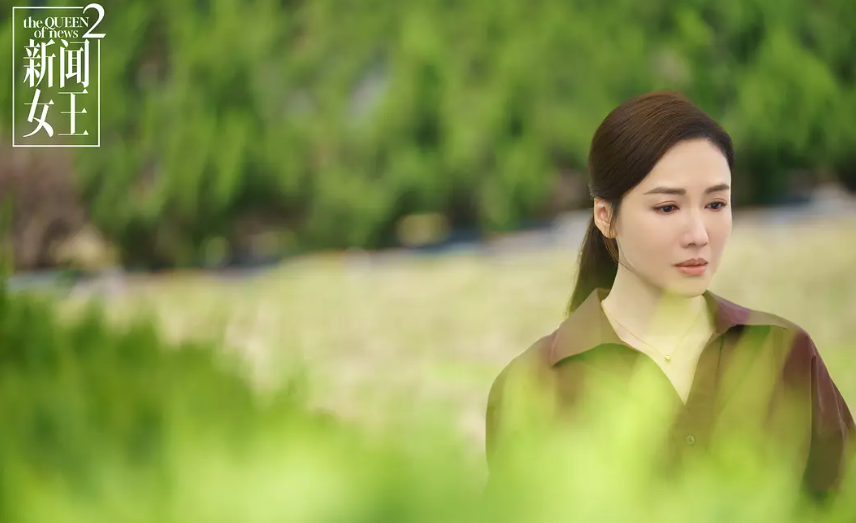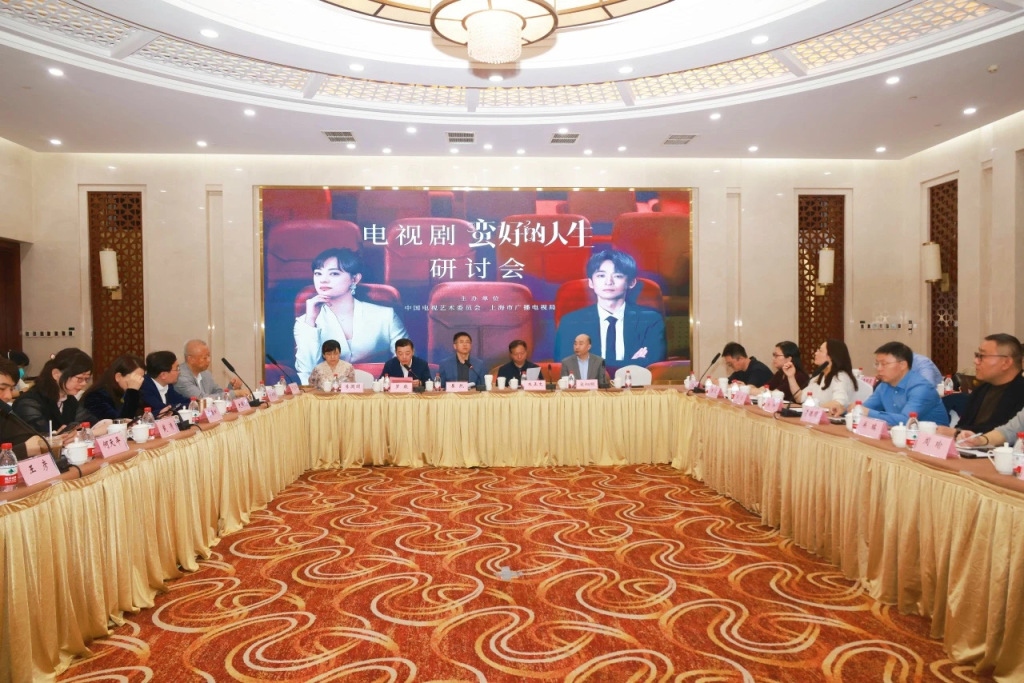
As the warm spring sun shines on the banks of Dianshan Lake, a "wisdom storm" in the film and television industry is quietly brewing in the ancient town of Jiangnan.
On April 7, the "2025 TV Drama Director Advanced Training Class (Shanghai Station)" was officially launched in Zhujiajiao Ancient Town, Qingpu District. This industry event, guided by the China Radio and Television Federation and co-organized by the Shanghai Municipal Administration of Culture and Tourism, took "practical empowerment and innovation breakthrough" as its action guide and attracted nearly 100 directors, screenwriters and industry practitioners from all over the country to participate.
At the opening ceremony held that morning, a roundtable meeting entitled "The Tide Surges and Flowers Bloom in the Jiangnan Corner - Famous Chinese Directors Visit Zhujiajiao" kicked off. Heavyweight guests from the industry such as Zheng Xiaolong, Yan Jiangang, Lin Nan, Wang Liping, and Li Xingwen gathered together to discuss industry challenges and future directions, and also provided many constructive suggestions for Shanghai to explore new paths for the film and television industry.

Opening Ceremony
The course is organized around four core modules
Last November, the first "Advanced Training Class for TV Drama Directors" was held in Beijing. At that time, 20 industry veterans, led by famous directors Zheng Xiaolong and Yan Jiangang, formed a top-level lineup of instructors, bringing students a series of vivid and informative professional courses, which won high praise from the students and wide recognition from both inside and outside the industry.
This year, the training class moved to Shanghai, a major city in my country's film and television production and broadcasting industry. The mentor lineup of this session continues the "top configuration" standard of the first Beijing class, led by President Zheng Xiaolong and Vice President and Secretary-General Director Yan Jiangang. Zheng Xiaolong, Li Xingwen, Wang Xiaoping, Mao Weining, Lin Nan, Zhou Xinxia, Huo Tingxiao, Bao Dexi, Chen Minzheng, Zhang Sheng, Yan Jiangang, a total of 11 mentors, will successively teach top professional courses such as directing, screenwriting, editing, art, photography, modeling, visual effects, and related knowledge such as industry trends.
The total study time of this training class is 36 hours. The course takes Shanghai as a new starting point and is richer than the first session. The course revolves around the four core modules of "director practice, technical frontier, creative experience, and case review". Director Zheng Xiaolong, who directed the phenomenal work "The Legend of Zhen Huan", and Bao Dexi, the photographer of "Flowers" and the Oscar winner of Best Cinematography, will share their own experiences and share the creative codes behind the hit film and television works. Bao Dexi especially mentioned that many of his sharing of the behind-the-scenes shooting process of "Flowers" were disclosed in China for the first time.
The training course was co-sponsored by the Shanghai Radio, Film and Television Production Industry Association, which has more than 1,300 member units covering the upstream, midstream and downstream of the industry. As domestic top-tier celebrities gathered to give lectures, the places for the training course were quickly snapped up as soon as they were launched. Yu Zhiqing, vice president and full-time secretary-general of the Shanghai Radio, Film and Television Production Industry Association, and director of the Shanghai Film and Television Service Agency and Center, served as the "class teacher" of the training course. He said: "The coordination services we previously provided for national crews to come to Shanghai for filming have become the 'Shanghai experience' learned by the whole country. Now, we hope that the model of using top resources to help young talents grow can also be widely promoted, pushing Shanghai-produced TV dramas and even Chinese TV dramas to new heights."
Zheng Xiaolong's message to young directors: Have unique cognition
Before the course officially started, the organizing committee held a special opening ceremony - a roundtable meeting attended by three well-known directors, Zheng Xiaolong, Yan Jiangang, and Lin Nan, and the famous screenwriter Wang Liping. Li Xingwen, a senior media person and drama researcher, raised the topic of "breakthrough and innovation in realistic themes". The participants discussed the direction of narrative and creation of TV dramas in the new era, directly hit the pain points of the industry, and jointly explored the way forward for the development of Chinese film and television.

Event site
During the exchange, Director Zheng Xiaolong gave a message to young directors: "As a basic director, you must be able to think, have your own unique cognition, and have a better understanding of human nature, including the dark and bright sides. In a sense, the content of the film is the most important."

Director Zheng Xiaolong
Director Yan Jiangang said that he agrees with Director Zheng Xiaolong's view that "a director must have sensitivity and cognitive ability". Where do these abilities come from? He said: "The important job of a director is to transform text into attractive visual content, so the director's literary skills are crucial. Without the accumulation and nourishment of thousands of characters in classic Chinese and foreign literary masterpieces, it is definitely not enough to be a performance-oriented director."
Director Lin Nan talked about the qualities that young directors need to possess from a technical perspective. He said that many directors were eliminated by the times because "after the birth of new technologies, they resisted the introduction and follow-up of new technologies", but young directors have innate advantages because they are passionate about new technologies. "The essential difference between humans is the ability to use tools, and technology is a tool, so new directors should embrace new technologies with great enthusiasm."
From different perspectives, the directors explained the various skills that directors need behind the birth of a masterpiece, but they also emphasized that the foundation of everything depends on the screenwriter and the good text. The famous screenwriter Wang Liping has created many hits. The success of her works is because she adheres to a principle she has always emphasized - a good story needs to capture the mood of the times. How to capture? "You need the courage and strength to persist, and you need to be diligent," said Wang Liping. "Screenwriters need to actively go to the grassroots, feel life, and write frequently. Whenever you have time, write more and record your thoughts and attitudes." She does this herself. Now, she has developed the habit of writing even when she is on an airplane or a high-speed train. She smiled and said, "I will adjust the font size to prevent people in the next seat from "peeking". In fact, such creation is particularly interesting."

Screenwriter Wang Liping
The core of literary and artistic creation lies in reflecting the diversity of real life. The development of the new era has brought new elements, providing a rich source for high-quality film and television works. The insights of famous directors and screenwriters have benefited hundreds of industry guests on the scene.
Strengthen industry interaction and promote the creation of more high-quality products
Luo Yi, member of the Party Leadership Group and deputy director of the Shanghai Municipal Culture and Tourism Bureau, deputy director of the Shanghai Municipal Radio and Television Bureau, and first-level inspector, expressed the hope that colleagues from the film and television industry across the country can come to Shanghai more often to "strengthen interaction, communication and exchanges among industries, put forward views, raise questions, seek new ideas, explore the laws of film and television art creation, and provide valuable opinions and suggestions for the high-quality development of the film and television industry."
Shanghai is an important base for China's film and television industry. In recent years, it has made remarkable achievements in TV drama creation. From "Glory and Dreams", "Nothing But Thirty", "An Jia" to "Fang Hua", "Wind Blowing Midsummer" and "City within a City", one excellent Shanghai-produced TV drama after another not only strives for excellence in art, but also leads the trend in ideological depth and cultural connotation, fully demonstrating the strength and responsibility of Shanghai's film and television creation.
Zhang Mingzhi, Chairman of the China International Culture and Art Center and Chairman of the Television Production Committee of the China Radio and Television Social Organization Federation, said that the relocation of the training course to Shanghai can "give full play to the rich cultural resources and broad market space of Shanghai as an international metropolis, strengthen exchanges and cooperation among the TV drama industry, open up all links in the film and television industry chain, explore new paths and new models for TV drama creation, and promote content innovation, form innovation, and technological innovation to enhance efficiency and empower."
The holding of this training course reflects the efforts of Shanghai's film and television industry in leading creation and model innovation. By optimizing the allocation of TV drama creation resources and strengthening the collaborative cooperation among industry players, Shanghai is committed to creating the "optimal ecology for drama creation" and promoting the birth of more high-quality works.
The "2025 TV Drama Director Advanced Training Class (Shanghai Station)" is guided by the China Radio and Television Federation and the Shanghai Municipal Culture and Tourism Bureau (Shanghai Radio and Television Bureau), co-organized by the Publicity Department of the Qingpu District Committee of the Communist Party of China, the Qingpu District Culture and Tourism Bureau, the China Radio and Television Federation TV Drama Director Working Committee, and the Shanghai Radio, Film and Television Production Industry Association, and hosted by the "Film and Television Circle" media organization.


